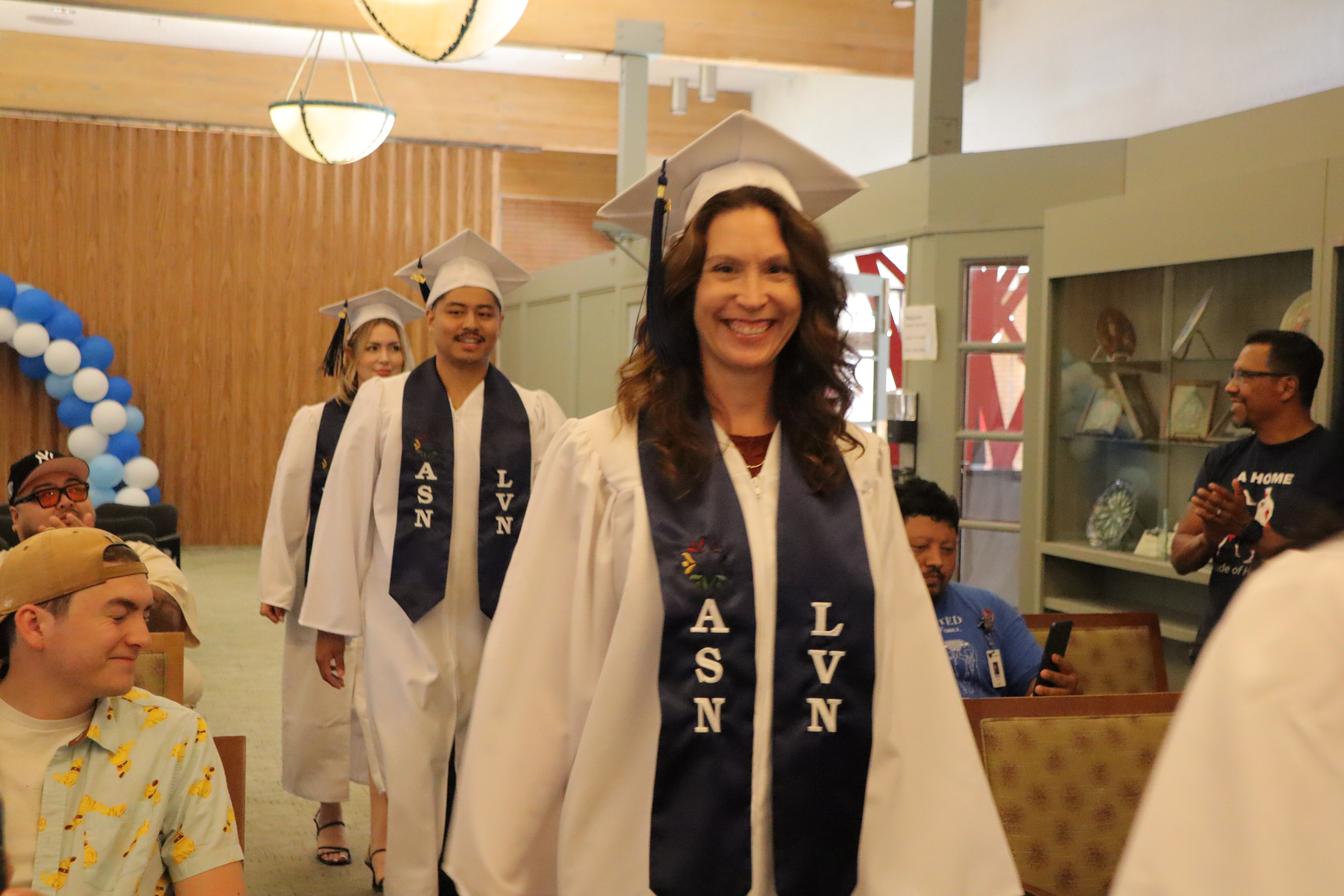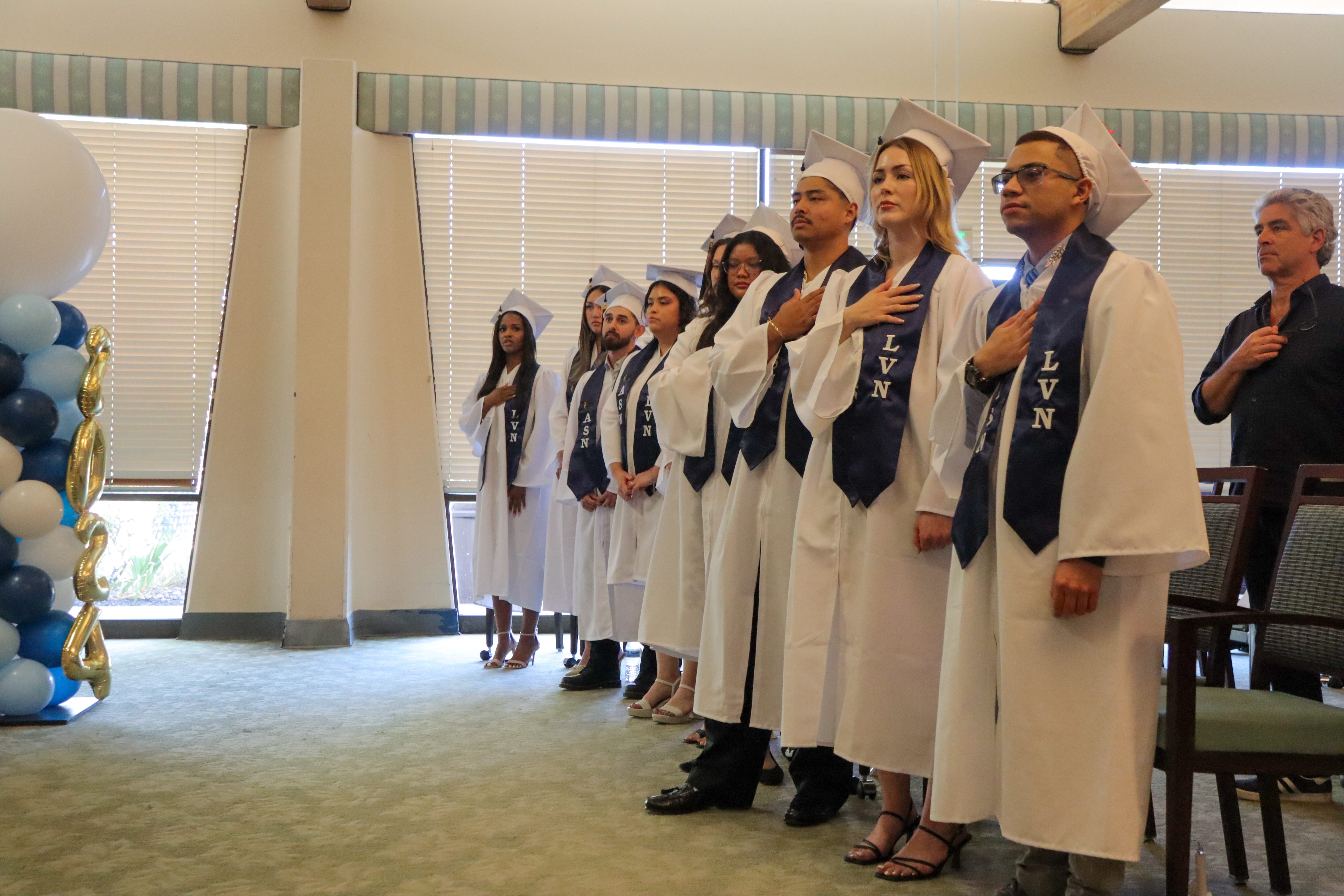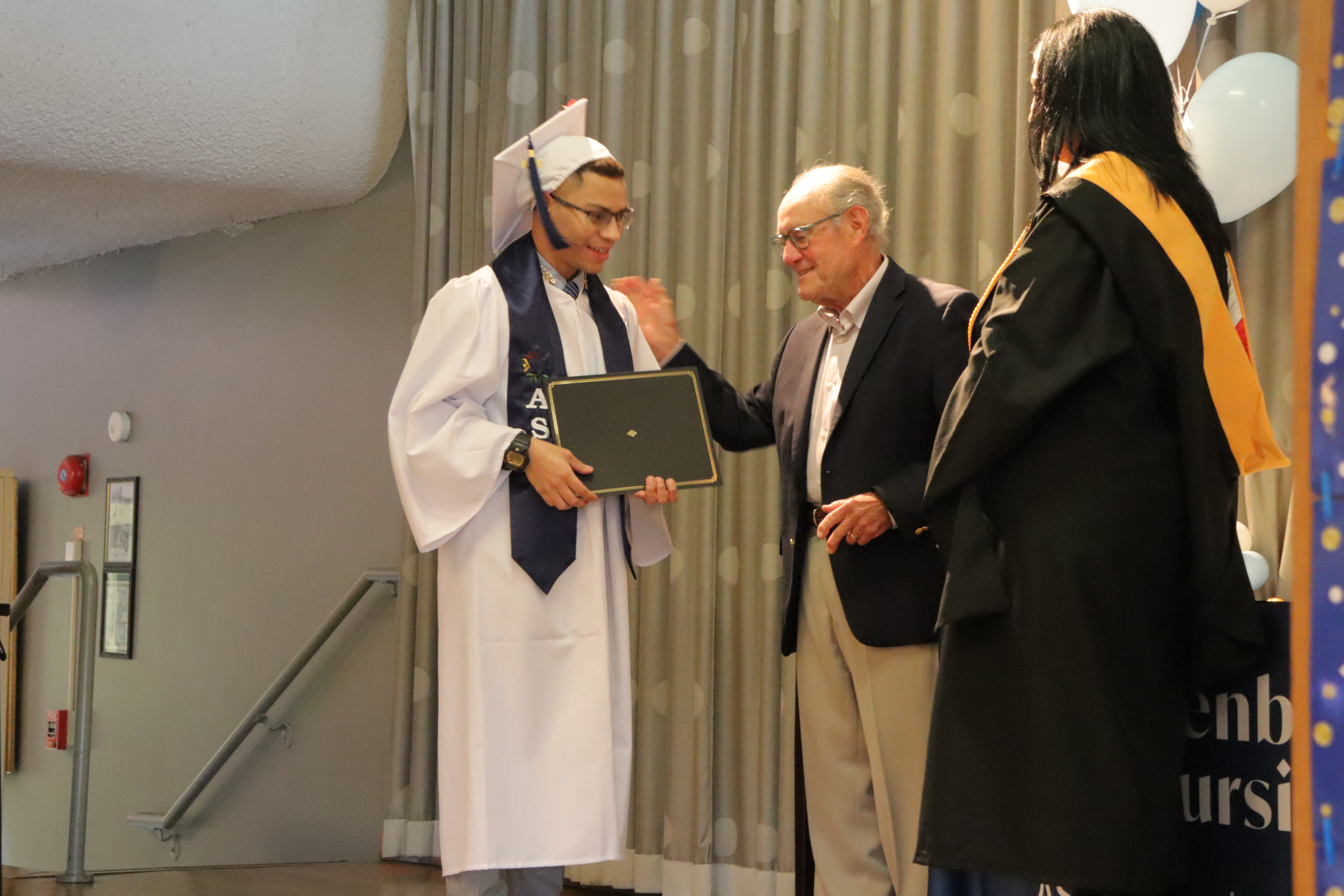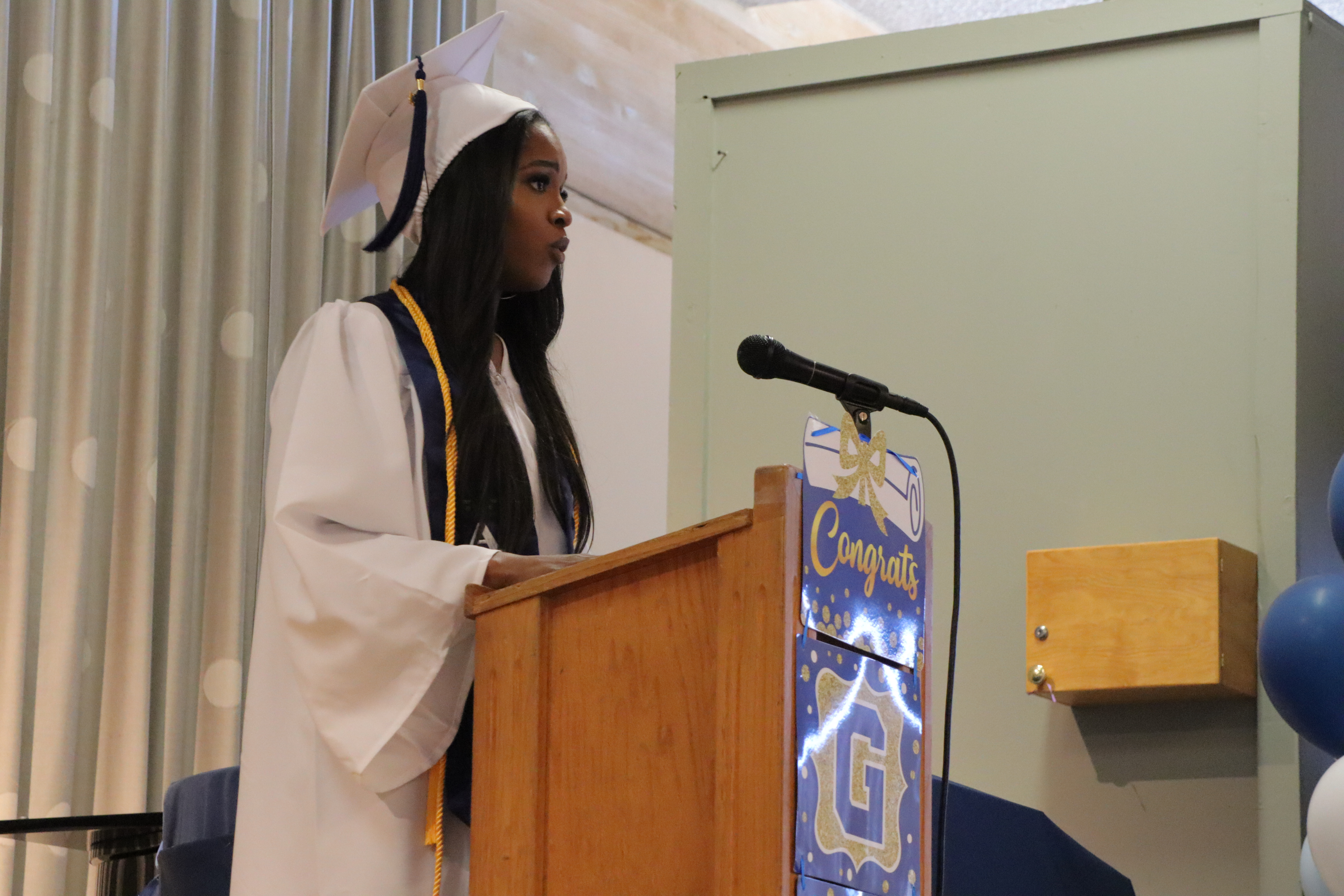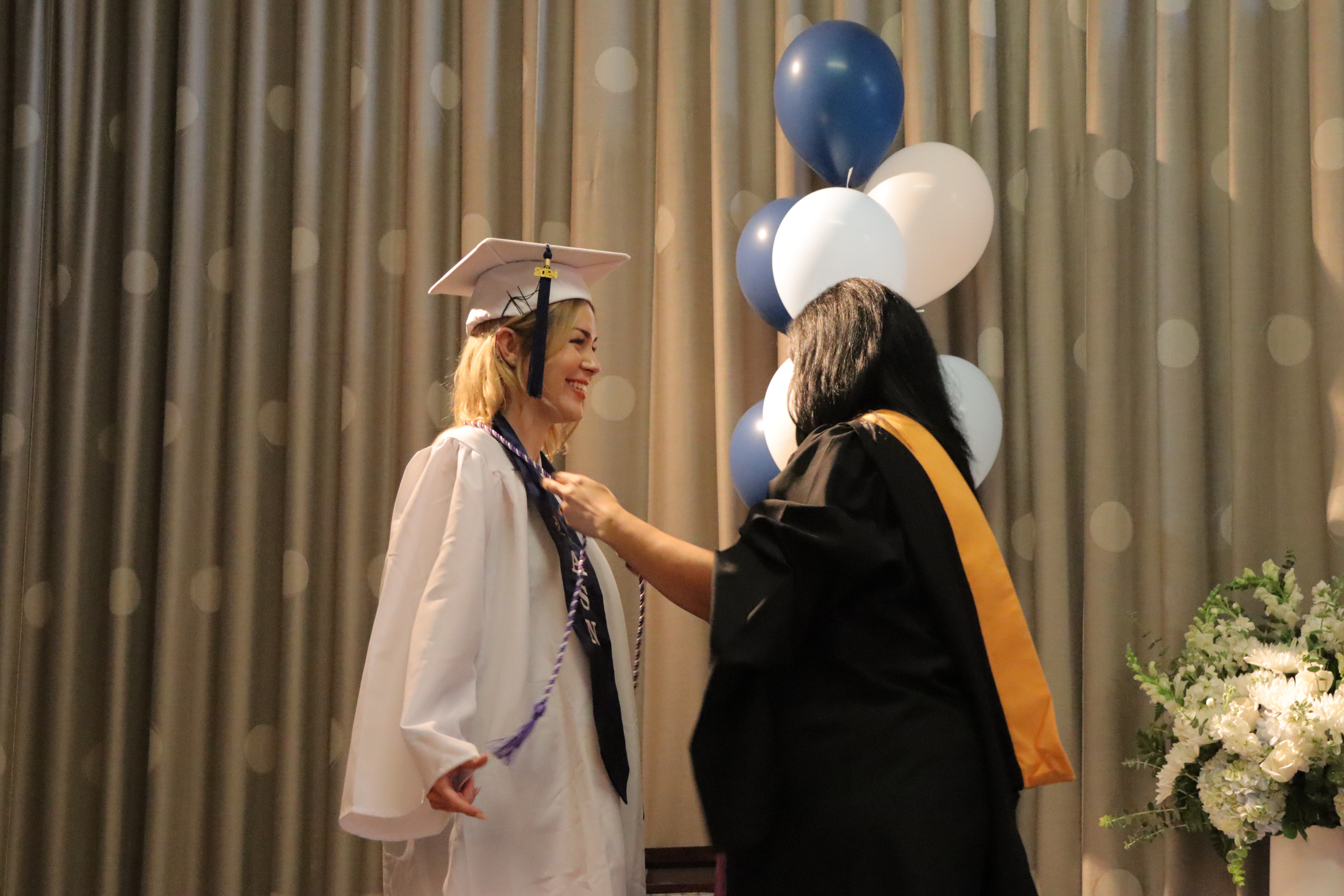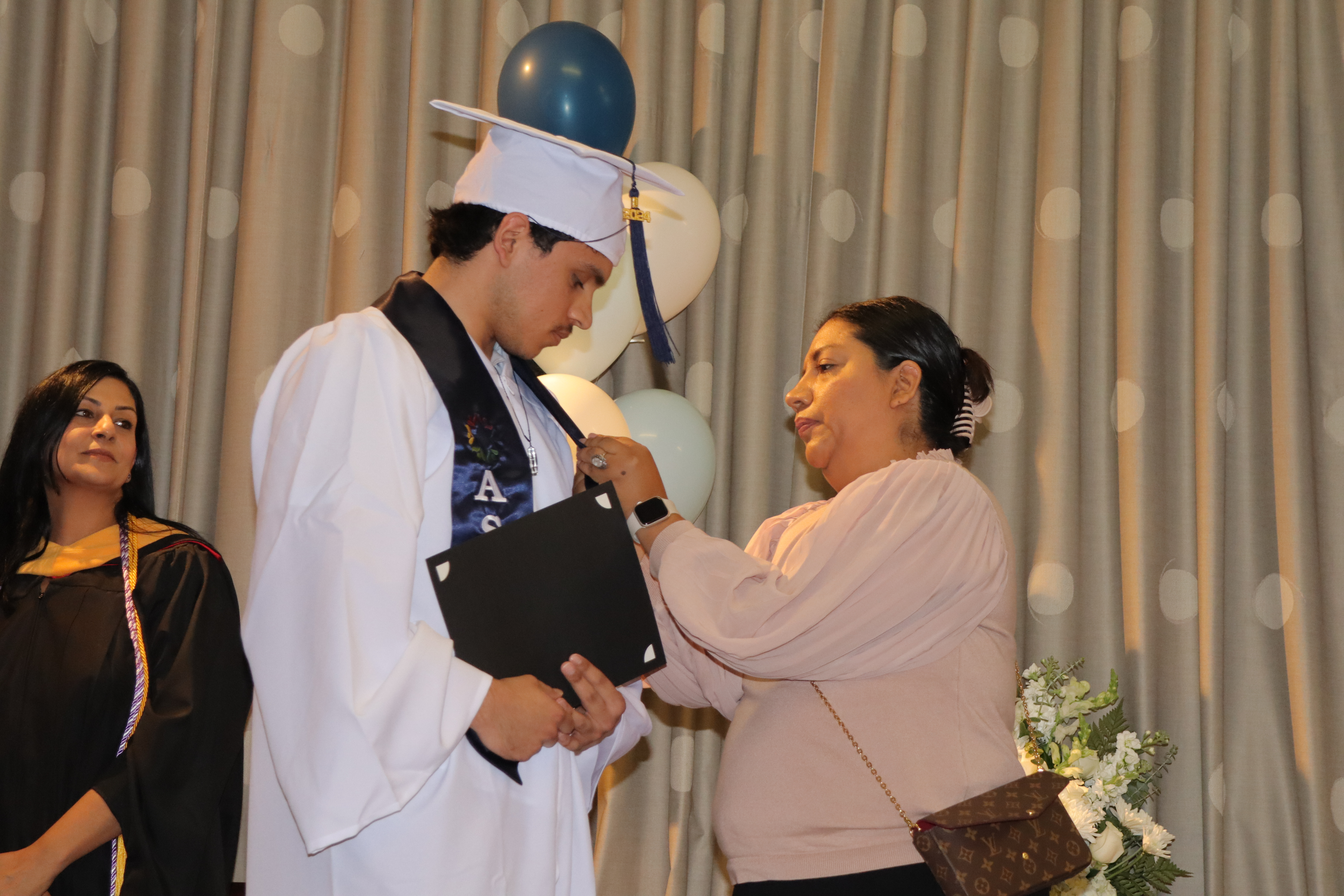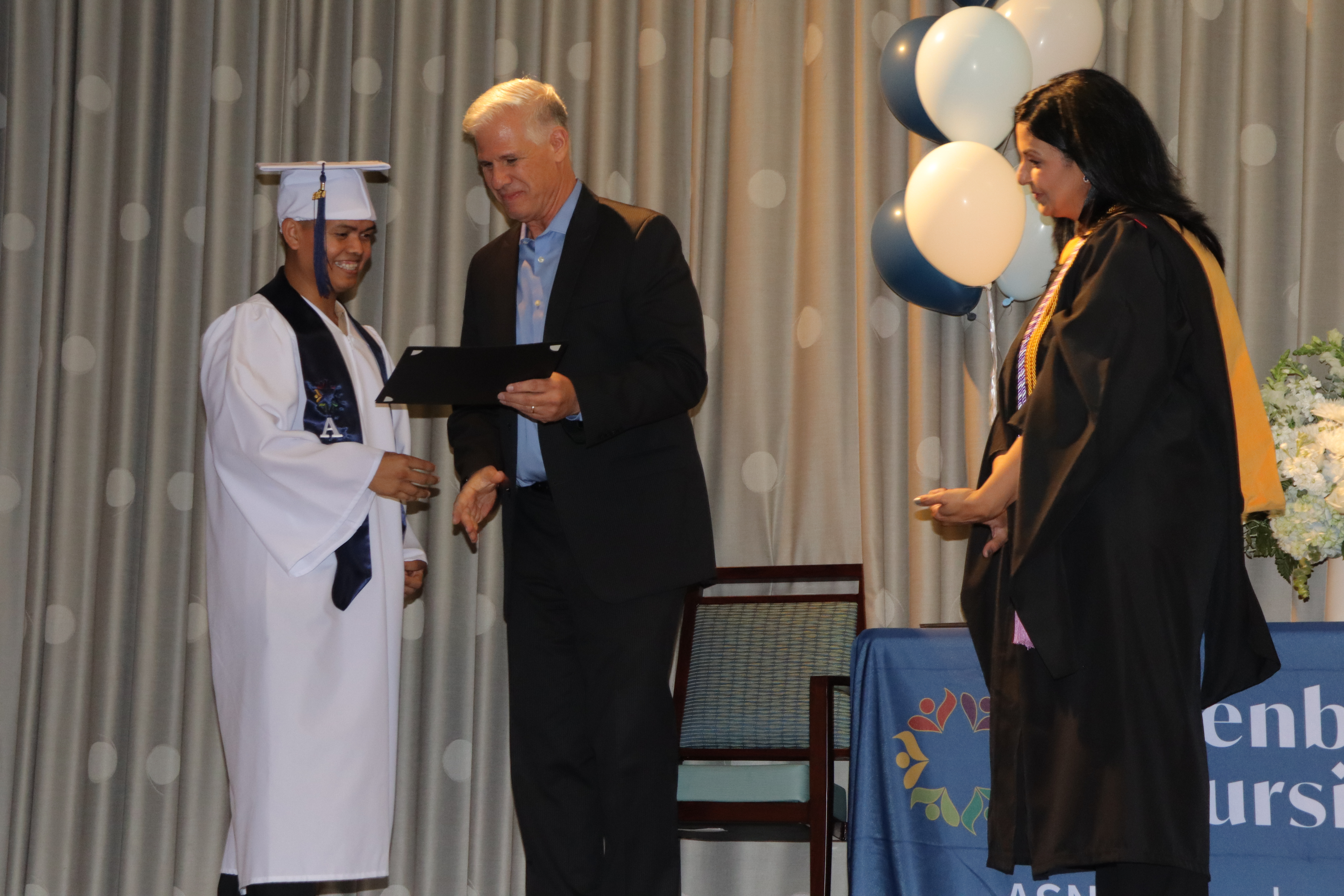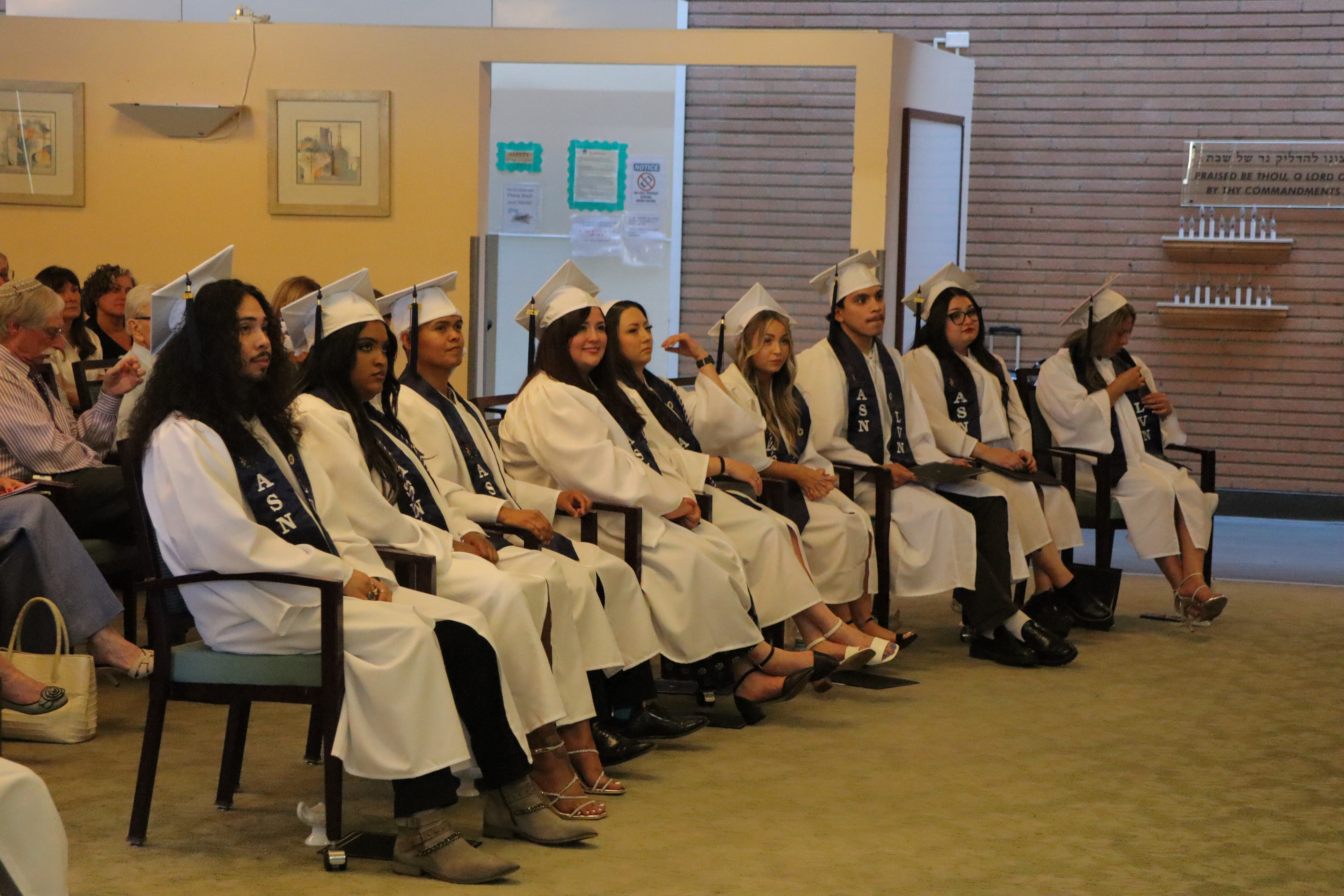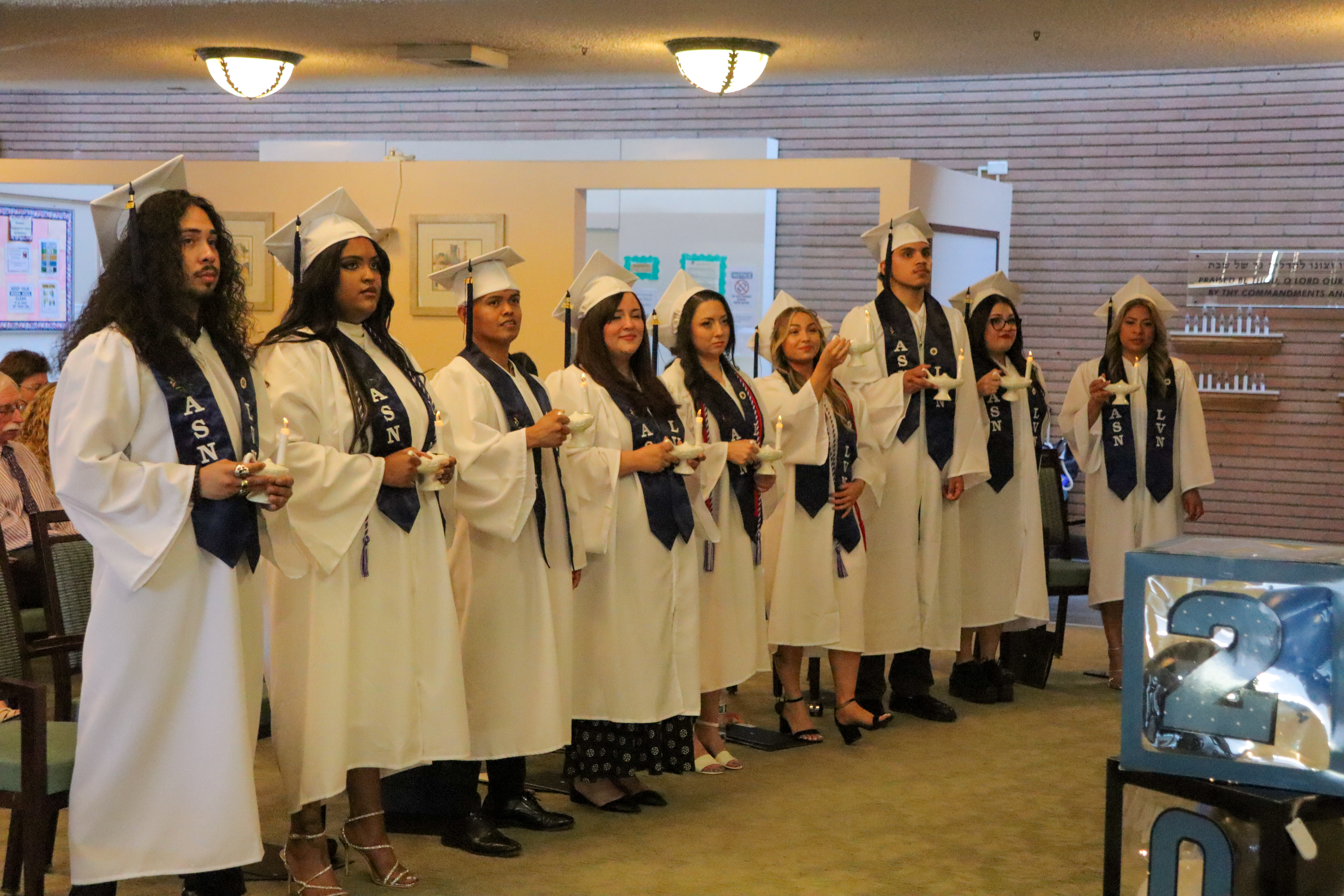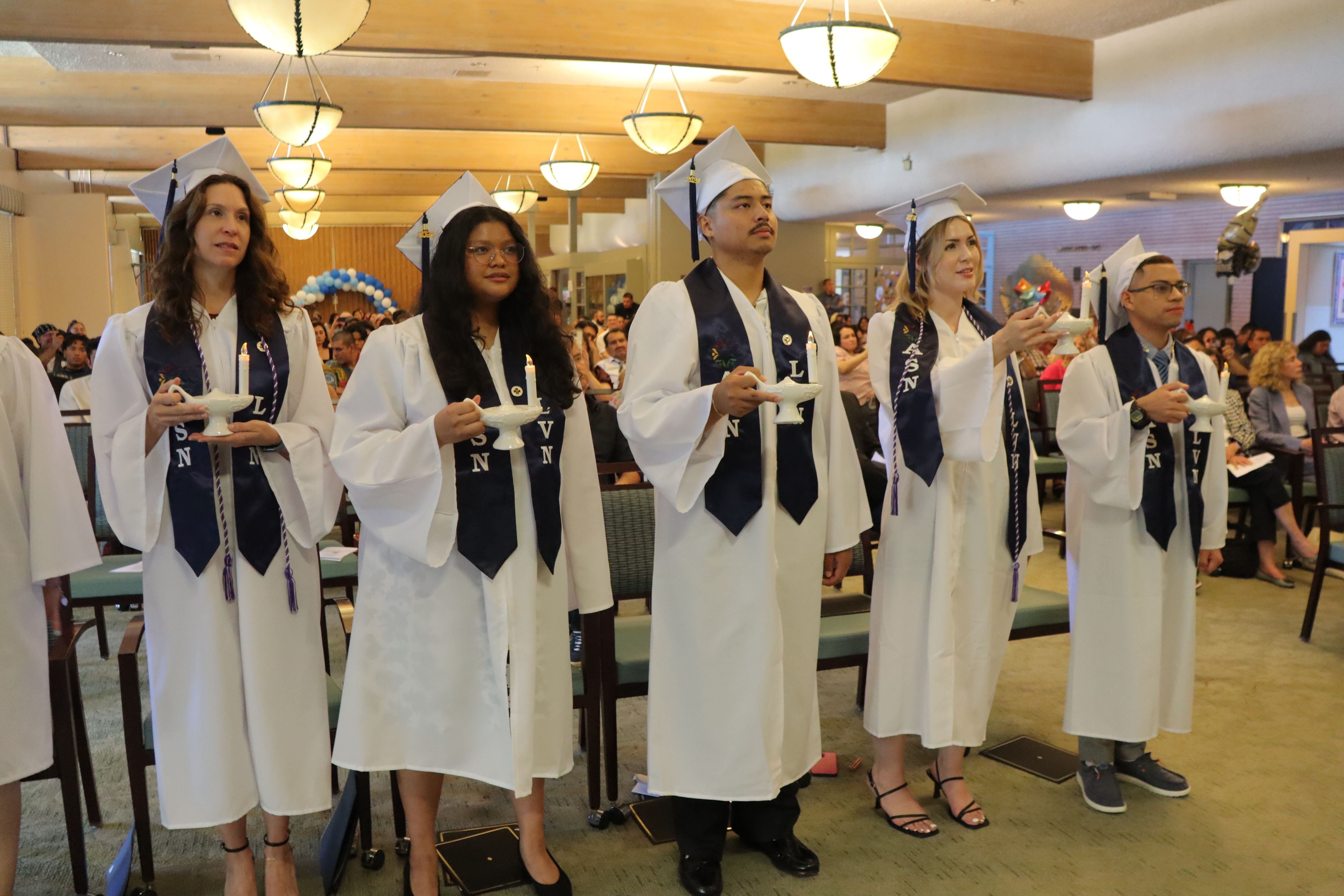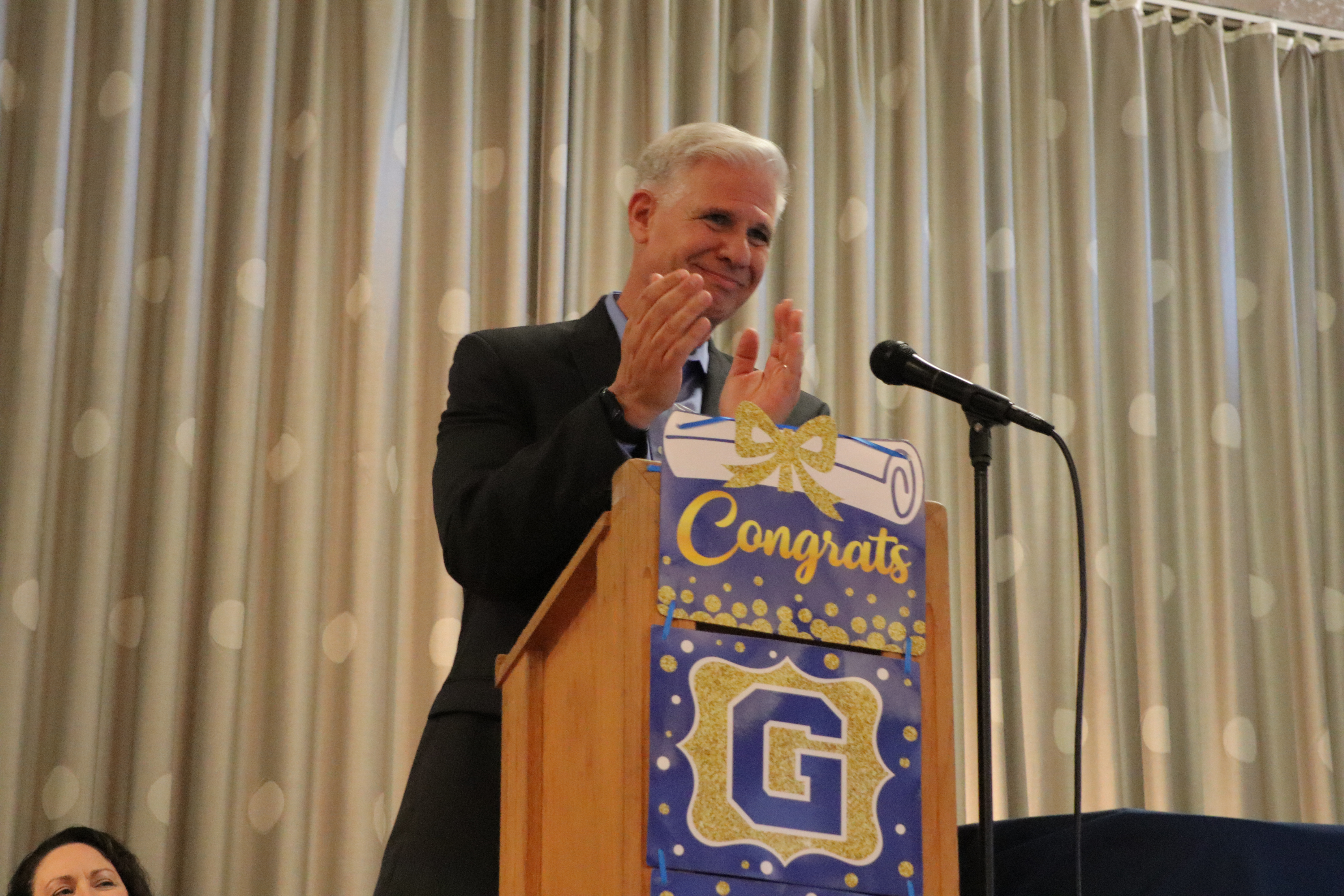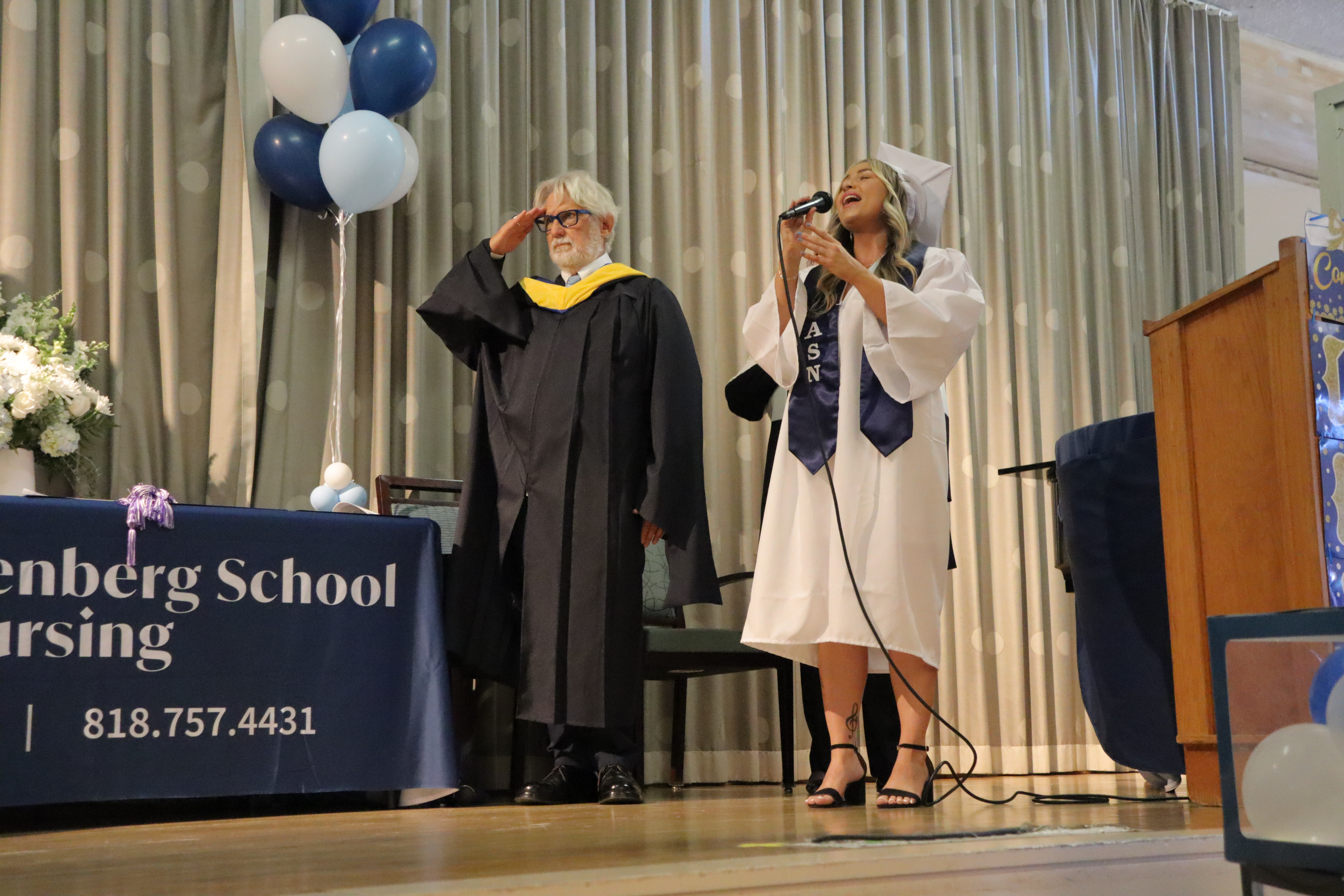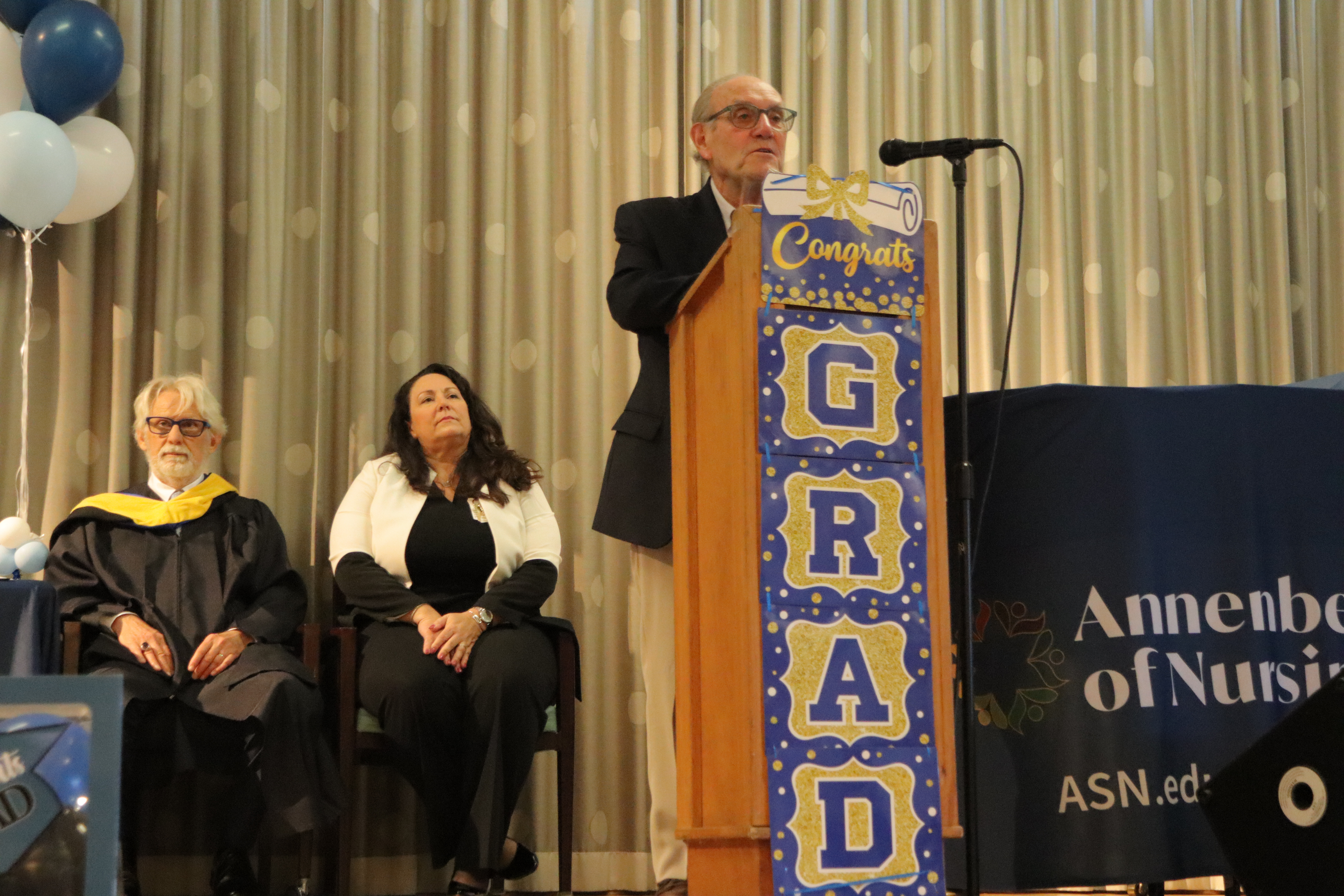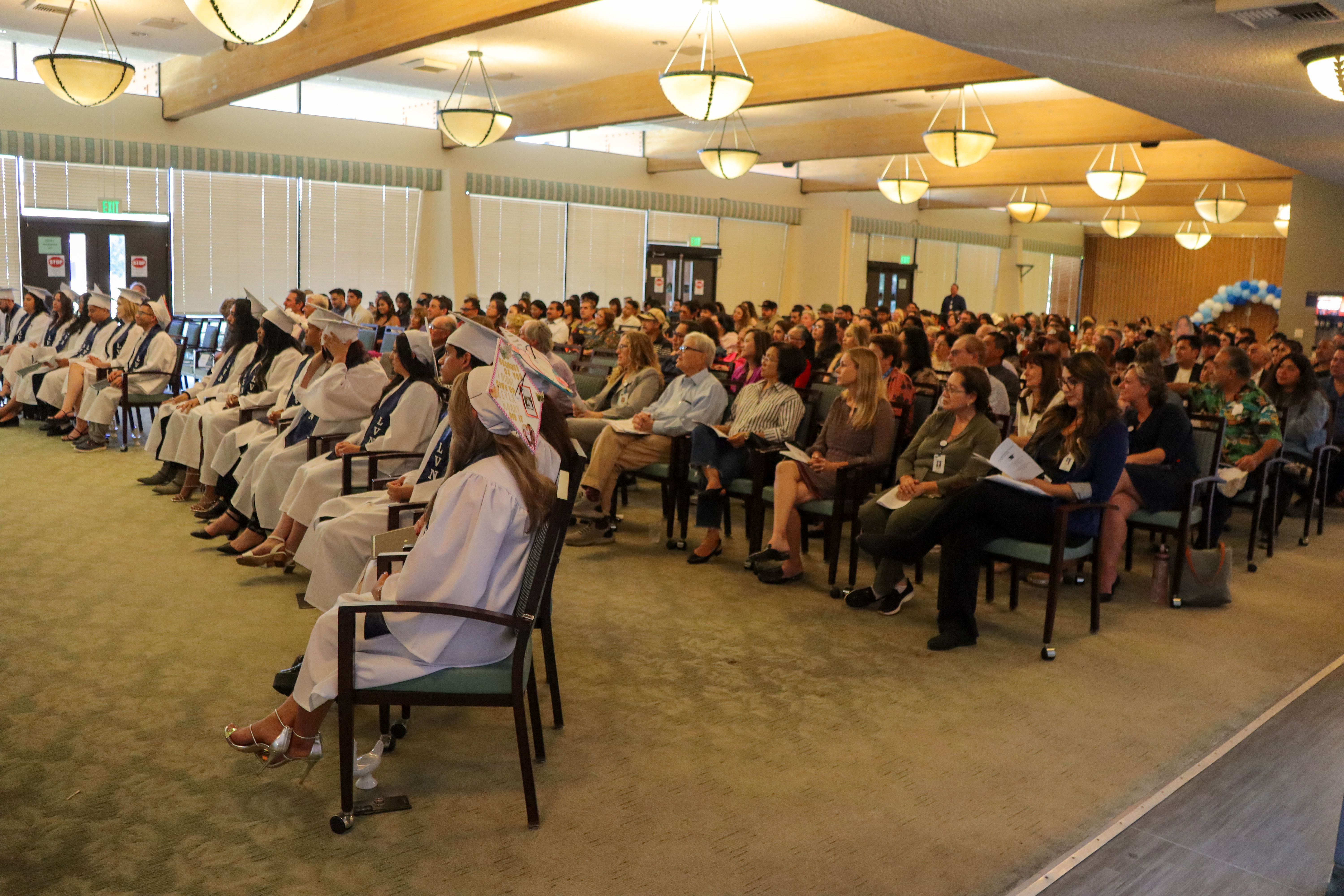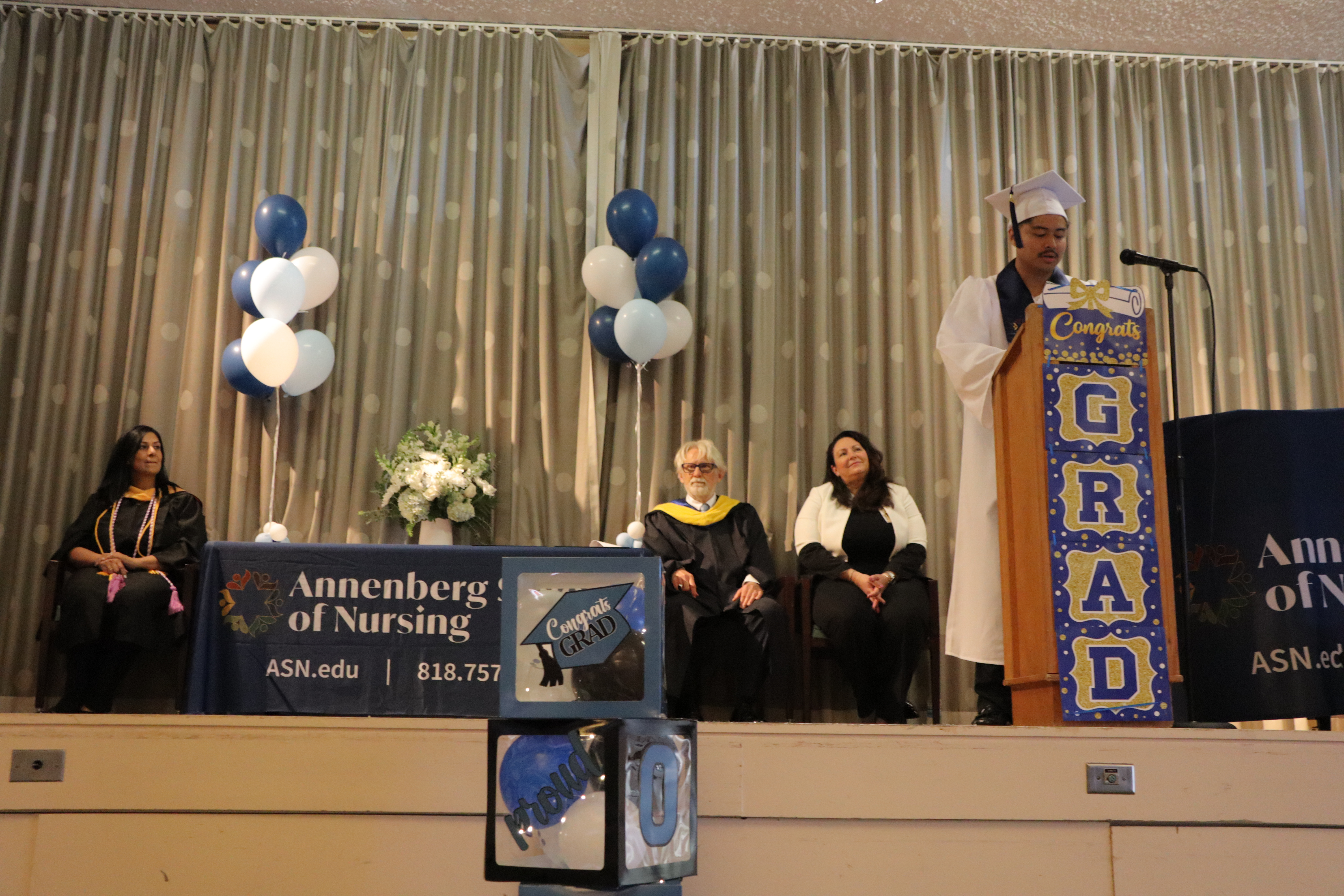Annenberg School of Nursing Graduates Future Leaders in Healthcare


Annenberg School of Nursing Graduates Future Leaders in Healthcare
The nursing profession in California is in dire need of reinforcements: Estimates show a statewide shortage of nurses made worse by burnout from the COVID-19 pandemic. In August, Los Angeles Jewish Health (LAJH) continued doing its part to increase the numbers of talented nurses by graduating a new class from its highly regarded Annenberg School of Nursing (ASN).
The 18 graduates join a long list of distinguished alumni making a critical difference in the well-being of seniors at LAJH, as well as many other health agencies, hospitals, and care settings across Los Angeles and beyond.
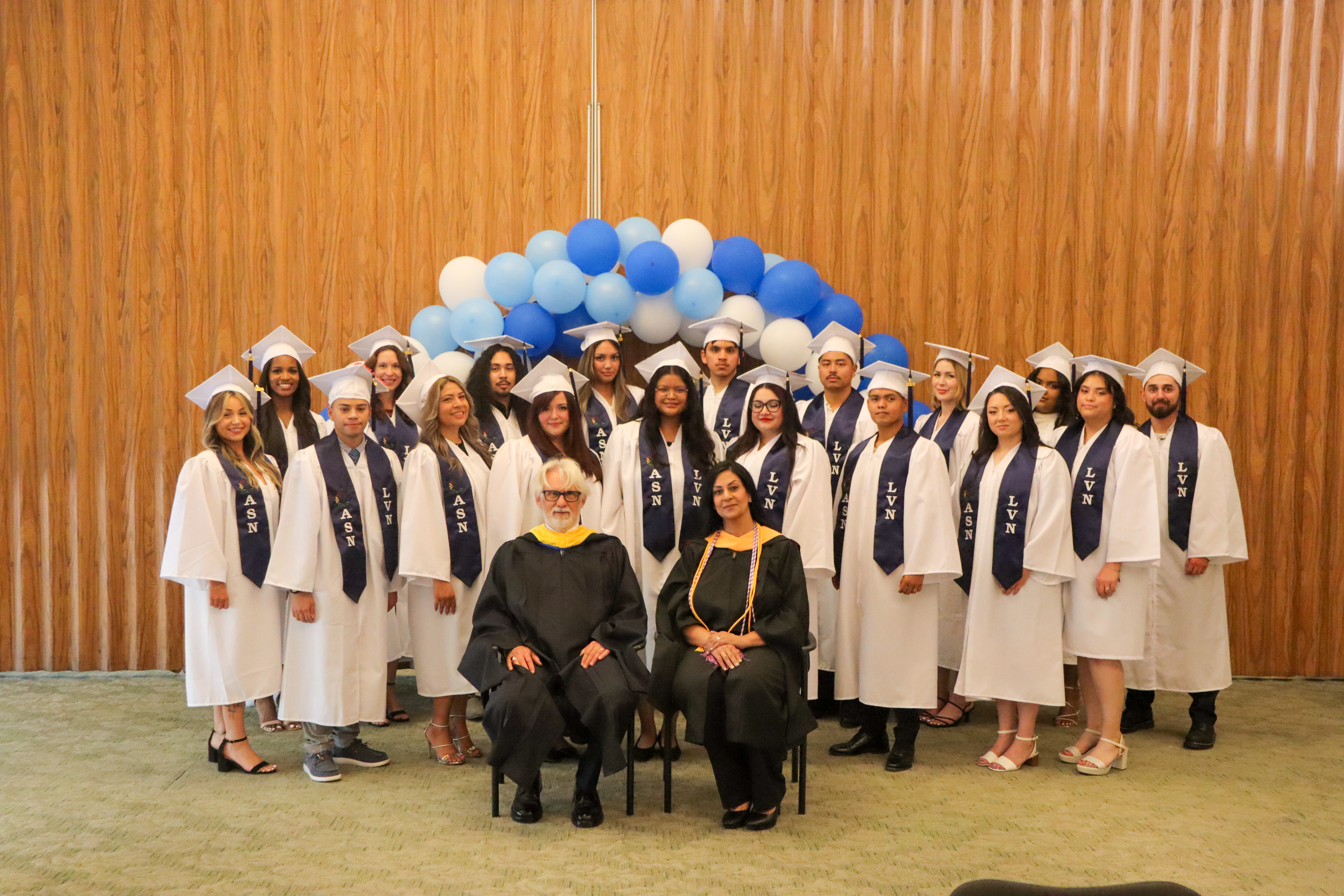
“This year’s class should be incredibly proud of their achievements, not only because they worked hard and distinguished themselves, but also because they are now equipped to go out into the world and help strengthen their local communities,” says Amandeep Kaur, director of the nursing school.
It was standing room only for the crowd of more than 400 attendees, who joined the graduates for a moving and meaningful ceremony at LAJH’s Pepp Center Dining Room, located on the Eisenberg Village campus. Executive leadership from LAJH participated in the event, among them Chief Human Resources Officer Alyssa Alderman, who served as master of ceremonies; Rabbi Karen Bender, chief mission officer; Rabbi Ron Goldberg, Eisenberg Village rabbi; and Sheldon Steier, president of the ASN Board of Directors.
The graduates represent the best and brightest of a new generation of nurses. Entry into the school is competitive: Out of more than 100 applicants, only 24 make the cut for admission to each class. Many of those individuals—including 16 of this year’s 18 graduates—are the first in their families to have earned a college degree.
Student speakers played a prominent role in the ceremony. Class valedictorian Kierra Westbrooks spoke movingly about what motivated her to pursue a career in nursing and enroll at ASN.
“During the COVID-19 pandemic, I watched the overwhelming need for nurses and felt helpless sitting at home,” she recalled. “That was the moment I knew I wanted a career where I could make a difference, ensuring I would never be deemed ‘non-essential’ again.”
Jake Racimo, vice president of the Class of 2024, offered appreciation on behalf of his fellow graduates for the support they received during their ASN journeys.
“I want to extend my thanks to LAJH and the Annenberg Foundation for the generous donations you have given to this program, not only to assist the students financially, but also to make our dreams into a reality,” he said. “And to the board of directors at LAJH and ASN and to [LAJH President and CEO] Dale Surowitz, thank you for navigating us toward a successful nursing career.”
Class president Ashley Davis, who received the coveted Florence Nightingale Award, congratulated her peers on reaching such an important milestone.
“We finally made it to the finish line,” she said. “I can’t wait to see what life has in store for us.”
ASN Graduation Gallery Click Here
